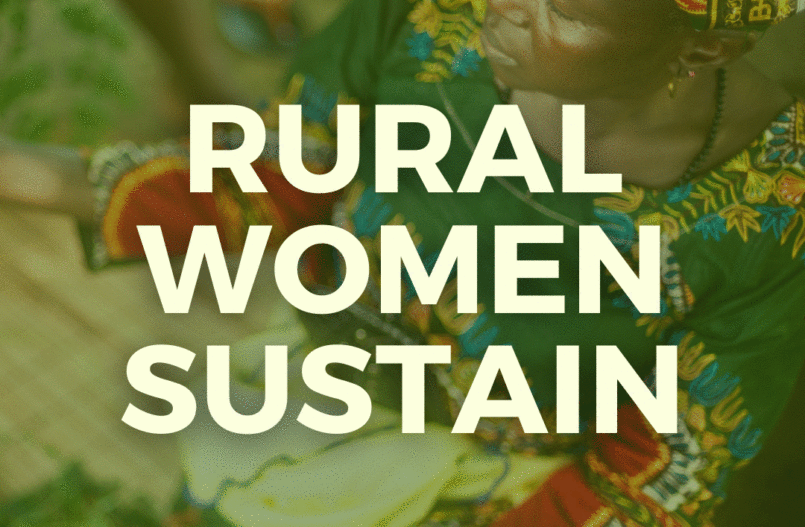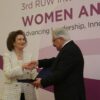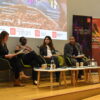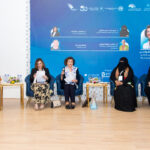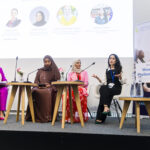This year’s UN International Day or Rural Women, under the theme ‘Rural women cultivating good food for all’, AIWF is proud to join our partners in the international development community in recognising the vital role of women in food systems around the world.
Agriculture is crucial to economic growth: in 2014, according to the World Bank, it accounted for one-third of global gross-domestic product (GDP). Agriculture can help reduce poverty, raise incomes, and improve food security for 80% of the world’s poor, who live in rural areas and work mainly in farming. Agricultural development is one of the most powerful tools to end extreme poverty and boost shared prosperity, which could feed a projected 9.7 billion people by 2050.
Supporting and investing in sustainable agriculture and the rural economy could go a long way to contributing to the realisation of the 2030 Agenda for Sustainable Development (SDGs) in the Arab region – specifically, Goals 1 & 2 (on poverty and zero hunger); Goal 3 (good health and wellbeing); Goal 6 (clean water and sanitation); Goal 8 (Decent work and economic growth); Goal 10 (on reducing inequalities); Goal 11 (building sustainable cities and communities) and Goal 13 on climate action.
FAO data shows that women comprise about 43% of the agricultural labour force globally and in the MENA Region, the female share of the agricultural labour force stands at around 45%. Agriculture is the largest employer of women in the MENA region, with the female share of the agricultural workforce exceeding 60% in Jordan, Libya, Syria, and the occupied Palestinian Territory. Improving the lives of rural women is key to fighting poverty and hunger in the MENA Region.
The International Labour Organization (ILO)’s Decent Work Agenda offers an integrated framework for rural women’s empowerment, underpinned by international labour standards, social dialogue and the recognition that rural women play a key role in climate action. AIWF has been working in this space for twenty years now, with the World Bank, the ILO, OECD, UN Women and the FAO, and we have seen firsthand that progress towards meeting many of the objectives of the SDGs are being strengthened significantly by small scale entrepreneurs, SMEs and social enterprises.
Throughout the MENA region, women are involved at every level in the agricultural chain, as producers, entrepreneurs, engineers, researchers and policymakers, and a high number of households in the Arab world are led by women that are solely dependent on agriculture. But despite the vital role of women in this sector, women in the rural and agricultural sectors still face the most significant gender disparity, a situation that the ILO describes as “the ever-present challenge”.
By ensuring that due attention is paid to the voices of women and youth in the rural and informal sectors, we can drive equitable economic prosperity and social transformation in the MENA region in both urban and rural economies – and we can most effectively do this by stimulating and supporting a culture of entrepreneurship around agriculture.
Entrepreneurship has unprecedented power to bring young people into the sector to apply their love for and interest in food, farming, and sustainability towards creating and innovating the tools, technologies and new models that will build a stronger and more equitable food system for all. Post-COVID efforts to aid economic recovery make this a pivotal moment as the conditions for success in entrepreneurship in the agricultural sector and rural economy are ripe, and the sector is ready and open for innovative young leaders to reform the way the rural economy works and indeed to transform the entire food chain.
Technological innovation, entrepreneurship and social enterprise within sustainable agriculture could also provide a vital solution to the youth unemployment crisis in the region which as we all know stands at 21% in the Middle East and 25% in North Africa, higher than any other region in the world. It can also spark exciting discoveries of new techniques and technologies that can support sustainable agriculture in the MENA region and beyond, address wider sustainability issues in the region and fundamentally, open up new markets for agricultural exports and technologies.
For all of us in the MENA Region, economic growth and security are intrinsically linked with human security, prosperity, and social cohesion. The Arab world needs a thriving rural economy to meet the challenges of youth unemployment, food insecurity, water scarcity, women’s under-representation in the economy, and to alleviate hunger and poverty challenges. AIWF stands ready to work ever more closely with our partners in the international development community to empower and support women in the rural economy, and to recognise the role of the rural and agricultural sectors in efforts to alleviate poverty and promote inclusion and dignified, decent work for all.
Browse recent AIWF Initiatives on rural women, sustainable agriculture, food security and water scarcity:
- Women, Water & Youth – Amman, Jordan, September 2018
- Women as Engines of Economic Growth – Cairo, Egypt, September 2019
- AIWF x OECD Webinar: Building Resilience to Counter Unexpected Shocks: The OECD Response to the Gender Impact of the Covid-19 Crisis in the MENA, September 2020
- AIWF x UfM Webinar: 25 Years after the Barcelona Process: The UfM on Women & Inclusive, Sustainable Development in the MENA Region, October 2020
- AIWF Webinar: Building Back Better: Fostering the transition to a green economy, November 2021
- AIWF x World Bank x PepsiCo Webinar: What’s Cooking: Digital Transformation of the Agri-food System, February 2021




